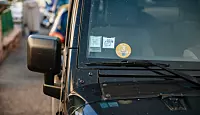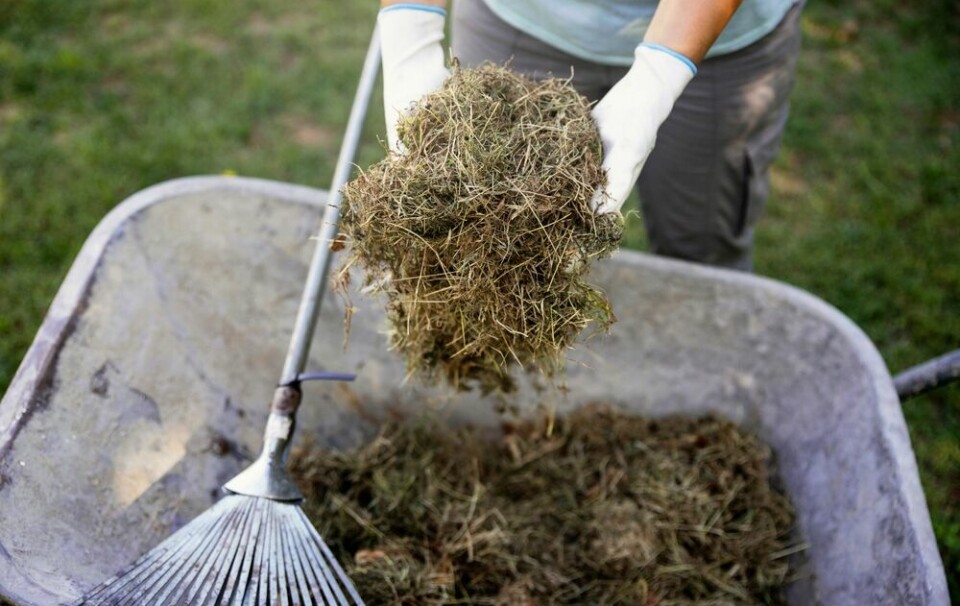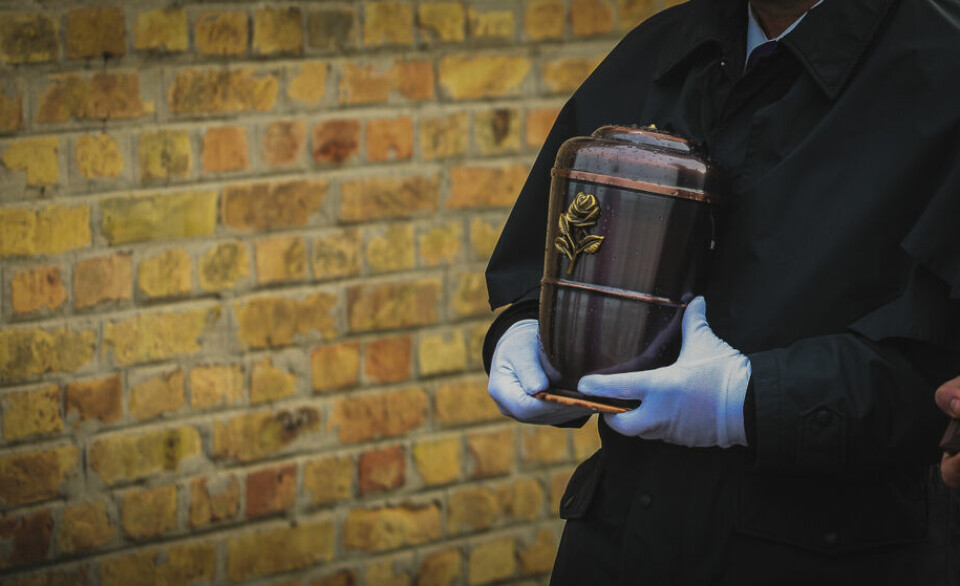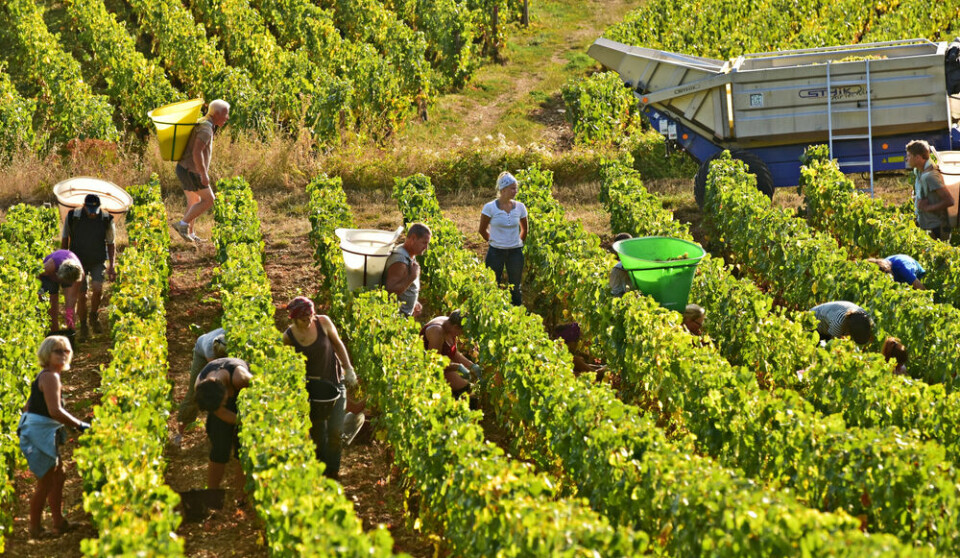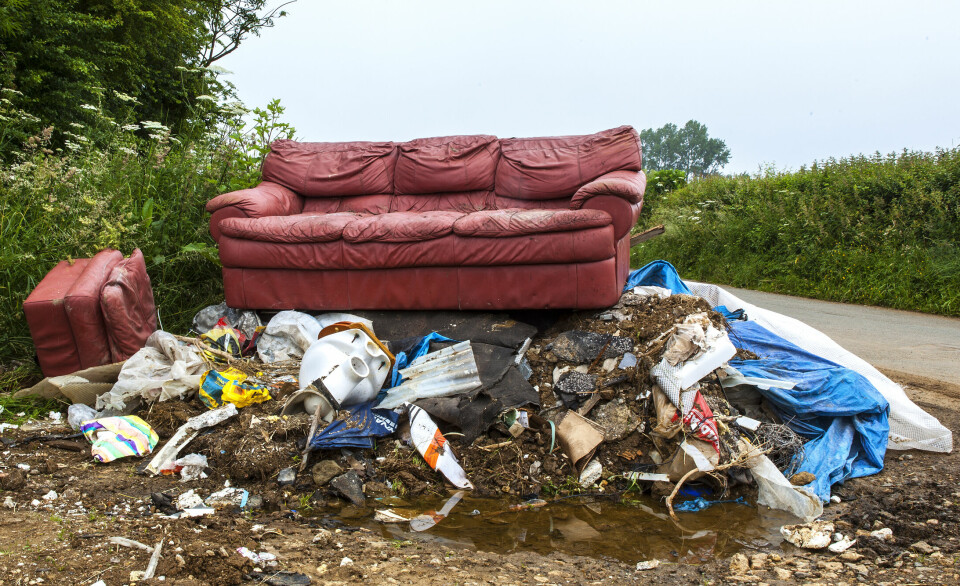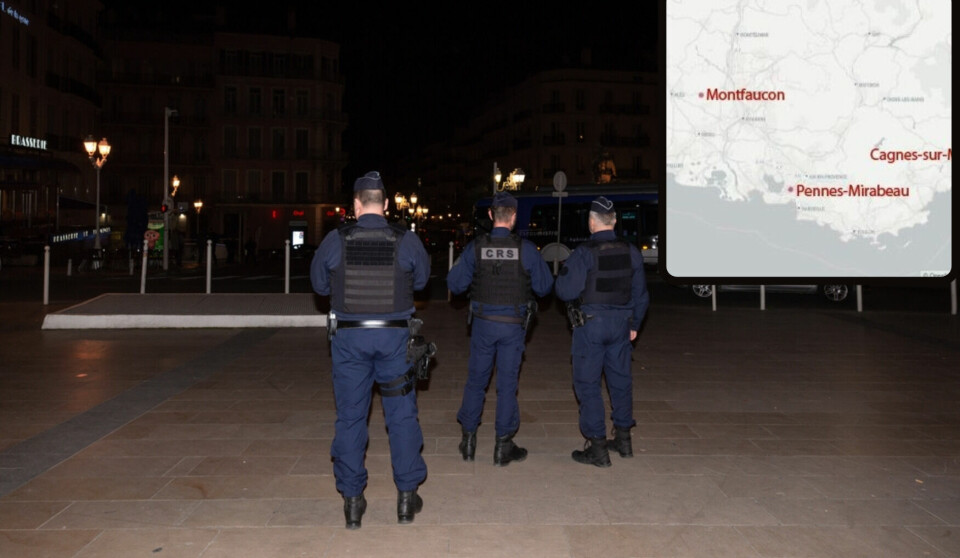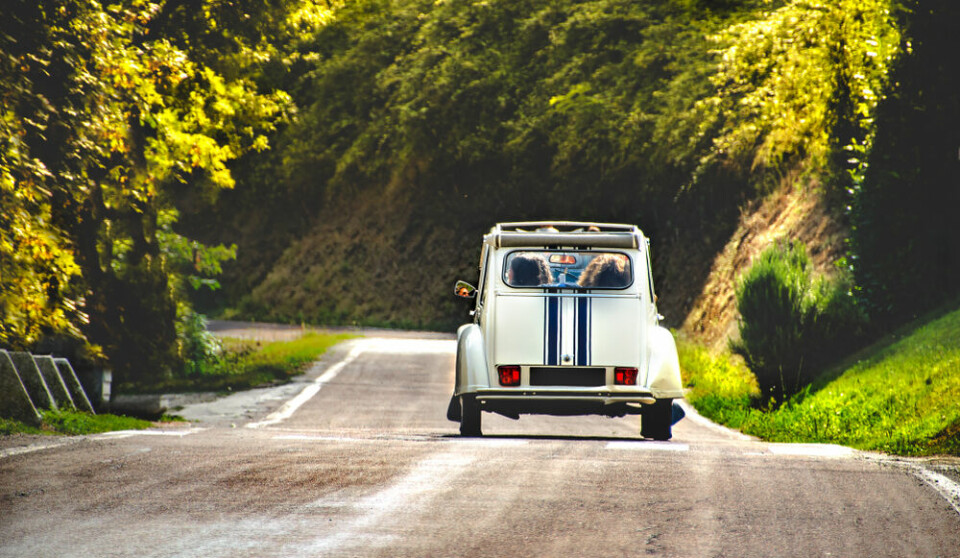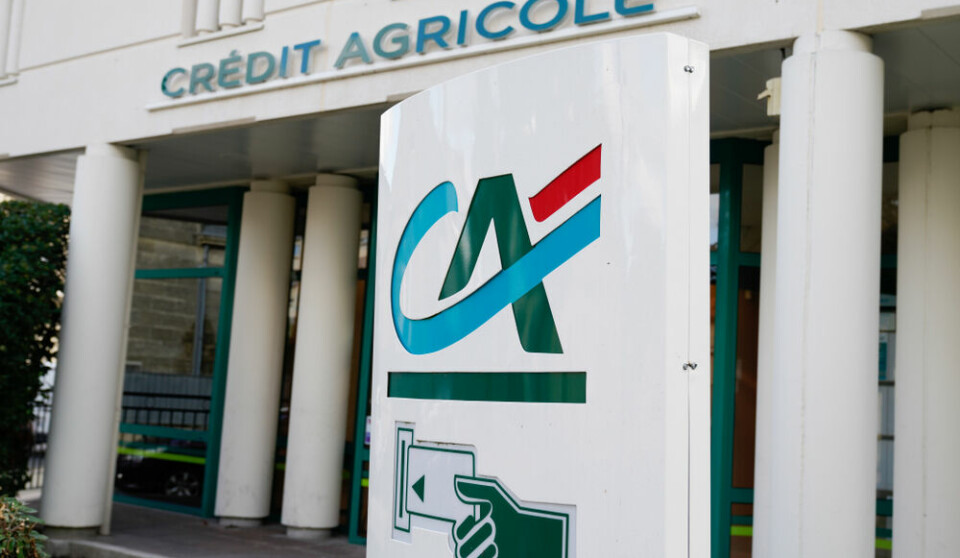-
MAP: Air pollution in France, the worst - and best - areas
Cities and the countryside face different threats
-
Air pollution improvement: Three French cities can ease car ban rules
One local council said it would not bring in ban regardless of the government’s decision
-
Two friends to hike across Corsica picking up cigarette butts
The adventurers aim to walk 450 kilometres removing litter, visiting schools, meeting people - and probably washing up a few dishes as they will be without a budget
Having to clean beaches is shameful
France’s Pavillon Bleu was the world’s first blue flag scheme for clean beaches. Here, Samantha David finds out what coastal authorities have to do to be awarded the prestigious mark

We all have our own idea of the perfect beach, but whether it is a wilderness of dunes and open sea, or a cool strip of wet sand covered in donkey’s hoof-prints, clean is a priority.
Too many of us of a certain age remember coming home with feet covered in crude oil, and even today tales abound of polluted water carrying viruses. Worse, it is predicted that with 8million tonnes of rubbish entering the world’s oceans per year, by 2050 the seas will contain more plastic than fish.
The good news is groups and associations are taking steps to keep France’s beaches clean.
The Pavillon Bleu (www.pavillonbleu.org) scheme, set up in 1985, was the world’s first eco-label, and Thomas Joly, the director, says that the association is proud of their record.
“The French love their medals and plaques, and in the beginning we simply wanted to encourage elected officials to work harder at preserving the environment by rewarding those communes who were doing better than average.”
Today the scheme is set up in 74 countries, and is a mark of excellence when it comes to messing about on the water.
Any commune which has a pleasure port or a beach is eligible (and a fee is payable), but these days the criteria are strict.
“There is a list of around 80 requirements, and a Pavillon Bleu beach has to meet them all to gain the flag.
“The water has to be regularly tested, the beach has to be cleaned daily, there have to be public lavatories, information boards, showers, separate bins for various categories of rubbish, properly managed parking, safety and first aid facilities, life guards, and all sorts of other measures.
“We also require access for those with reduced mobility. We prefer to say that rather than disabled access, because anyone can have reduced mobility at any time – a pregnant woman, a child wearing a cast to heal a broken leg, a man carrying a toddler... our point is that there should be easy access for everyone.”
Tourist attraction
When the scheme started, it was not intended as a tool for tourism offices, but as people become increasingly aware of the advantages of visiting a Pavillon Bleu beach, it has also become a way of highlighting rural and sustainable tourism, and is sought after as a way of attracting extra visitors.
The Pavillon Bleu scheme does not have a ranking within the awards. Either a beach meets the standards or it does not. There are no best or worst beaches.
This year, 173 French communes – many of them inland – have been awarded the Pavillon Bleu flag for at least one beach or port, bringing the total number of beaches in the scheme up to 390.
“Rural tourism is taking off and many of our beaches are on lakesides or riverbanks,” said Mr Joly. “And I think there is an interest in the natural world as part of a holiday but there is still much work to be done in educating people to keep beaches clean.
“Too many people still throw litter from their car windows, leave litter on beaches and in other natural beauty spots.
“We have to clean beaches every single day despite all our beaches being equipped with multiple bins and signs requesting people to use them. It’s shameful that we have to clean beaches daily, but we do...”
Beach clean-up
Pavillon Bleu reward municipalities that are getting it right, but another association is simply working to keep all beaches clean, wherever they are.
Les Initiatives Océanes, run by NGO the Surfrider Foundation Europe, aims to ‘reduce and prevent aquatic pollution related to rubbish by encouraging change in society’s attitudes and behaviour’.
Translated, that means they organise cleanups on all beaches, and work hard at persuading people to throw their rubbish in a proper bin.
As part of this year’s awareness-raising campaign, and to mark the International Year of Sustainable Tourism for Development, Pavillon Bleu is running a photography competition (from June 19 to September 8) to win a holiday.
Photos should illustrate any aspect of sustainable tourism, a cycle ride, a picture of wildlife, flora or fauna, or even an ecologically responsible morning cleaning a beach! (find more details at www.pavillonbleu.org)
The SurfRider Foundation Europe was set up in 1990 by American Tom Curren, a three-time world surfing champion.
It was modelled on the US SurfRider Foundation founded in 1984, and similar schemes operate in Brazil, Argentina, Japan, the US, Canada, Morocco, and Australia as well as Europe.
It has 10,000 members and 1,700 volunteers in Europe - though it is always looking for more. Joining is easy.
There is a list of up-coming rubbish collections on their website (available in English: www.surfrider.eu/en) and if one has not already been organised in your area, you can organise one right there and then using the tools on their website.
This makes volunteering easy if you live near any part of the French coastline, but why not think ahead and include a morning’s volunteering as part of your seaside holiday?
Sea of volunteers
Plage et Mer Propres, an annual volunteer rubbish collection, is another option. It is run by a chain of fishing shops called ‘Les Comptoirs de la Mer’ situated along the country’s north and north-west coasts.
On April 8 this year, they organised nearly 1,000 volunteers who collected a total of 568 sacks (ie 6.5 tonnes) of rubbish from 22 beaches.
The main rubbish collected consisted of fragments of plastic, followed by fishing detritus, cigarette butts, plastic bottles and glass bottles.
The aim is not just to clean beaches, but to raise awareness in their shops, visits to local schools, and a quiz on their website to encourage people not to litter anywhere, because 80% of rubbish found in the sea originates on land.
Out of 100kg of rubbish in the sea, 70kg sinks to the bottom, 15kg floats to the surface or is trapped in a tidal column and only 15kg is washed up on to beaches. Up to 95% of the rubbish found on the seabed is plastic.
But lovers of the outdoors are still spoiled for choice almost everywhere
France is blessed with beaches, from the long sweeps of wet sand along the north coast, with the English Channel glinting silver in the distance, to the cosy comfort of the strips of sand in the south, where the Mediterranean laps tamely at your toes all day long, and the wild Atlantic coast where waves crash and roar in an apparent effort to gobble the sand dunes and sweep them out to sea.
It also has amazing city beaches, the first of which was constructed in Paris in 2002. Since then, many other cities, including Grenoble, Toulouse, Metz, Rouen-sur-Mer, Dijon, Lille, Reims, Clermont Ferrand and Strasbourg have followed suit, all of them offering a chance to lézarder (bask like a lizard) in the sun without leaving the city.
There are also a multitude of beaches on the banks of France’s lakes and rivers. One of the best known is at the Pont-du-Gard in Hérault, where the river rumbles over large stones as smooth as eggs, and there is space for everyone to swim all day.
The lakes along the Swiss/Italian borders are perhaps best known, but the Lac du Salagou, near Montpellier, with its fantastic red earth and drab-olive scrub is rapidly gaining popularity and summer bathing resorts are being developed all across rural France, turning reservoirs and lakes into favourite destinations for days out.
Best beaches for horse-riders
Horses are famously ridden along the beaches in Normandy, especially near the Mont-St-Michel. An honourable mention goes to RandoCheval for their weekends riding the beaches of the Ile d’Oléron, but the top prize has to go to the Camargue.
The beaches at Saintes-Maries-de-la-Mer are officially out of bounds to horses during the summer months, but the area is so equine-loving that nobody minds a troop of horses quietly hacking along the beach at sunset, even in July and August.
Riders can traverse the marshes, , and spend the day riding along the beach. Organised outings with horse-riding holiday firm Elise includes a picnic on the beach and is guaranteed to satisfy anyone with a yearning to get into the saddle.
www.elise-camargue.fr/project/journee-complete-6-heures-a-cheval
Best beaches for people with sensitive skin
The combination of sun, salt and sand can be too much for some people. The answer is simple. Lake water is fresh, and beaches are often surrounded by grass with a fringe of trees to provide natural shade.
Lake Annecy is large enough to boast a selection of beaches, from small sandy coves surrounded with weeds, to the large grassy beach within the town of Annecy. As well as fresh water swimming, there are also pedalos and just a bit further on, boat trips round the lake.
Best beach for artists
Collioure is a beautiful fishing village in the Pyrénées-Orientales, which was discovered by a crowd of modern artists in the early 20th century.
The main beach is small and sandy, and offers a perfect spot to lounge and swim, but for artists, the appeal is the view across the twin bays which are home to the port and the beaches, and the opportunities to follow in the footsteps of the likes of Henri Matisse, Pablo Picasso, and Charles Rennie Mackintosh. Reproductions of some of their most famous works are displayed around the village, in the spots where they were created.
Best beach for cyclists
The Ile de Ré, with 110kms of cycle paths, most of them flat, is paradise for cyclists. The paths weave all across the islands, and many of the golden, sandy beaches, backed by dunes, are best accessed on two wheels.
Take a picnic with you, or stop at one of the many oyster shacks and refresh yourself with fresh seafood and local wines.
The island is packed with cycle hire shops, including Yoo Too (www.cycles-yootoo.com) in Saint Martin de Ré, which has a wide selection of cycles for hire from €6 for two hours. You can even hire a penny farthing.
Their distinctive black and white spots adorn bikes for kids, tandems, tricycles, trailers, baby carriers and even electric bicycles - which make cycling a doddle even if you’re not fit.
Best beaches for train-lovers
Corsica is heaven for train-lovers, with two of the most spectacular and iconic railway lines in the world. The line from Calvi which runs along the coast, at some points actually appears to be built on the golden sands. It stops at little beaches along the way, making them paradise for train spotters.
Best beach for activities
La Lac de Vassivière (www.lelacdevassiviere.com) which straddles the Creuse and the Haute Vienne, has a “petit train” to get you around the lake and a free taxi-boat which runs visitors to an island in the centre of the lake. It also has children’s games and play-parks, picnic sites, camp sites, hotels, and beaches.
There are zones for water-skiing, swimming, canoeing, fishing and sailing. There are cycle paths around the lake and the chateau on the island offers exhibitions, a sculpture park, and a lighthouse.
Best beach for dog walking
Although most beaches are out of bounds to canines, particularly during July and August, there are a select few which allow dogs. Some even allow dogs to be let off their leads.
In Normandy, the Plage de la Grande Dune de Sainte Marie du Mont (just north of the Utah Beach Museum) allows dogs.
A stretch of shimmering sand bordered by dunes, it is a favourite for sand yachting and is also used for exercising race horses and dogs all year. To find other canine-friendly beaches see www.plages.tv/chiens/liste-france
Best secret beach with waterfalls
In an unknown corner of the Gard, locals flock to Saint-Laurent-le-Minier to swim in the deliciously cold waterfall which tumbles off the rocks into a series of pools and cascades.
The most adventurous can edge onto the rocks behind the wall of racing water, but most people lounge in the sun on naturally flat stone slabs, while toddlers play in pebble pools further downstream.
Completely unknown a decade ago, this beach now has a car-park and bar and is listed in the guide books. Best go now before it gets “discovered”.

